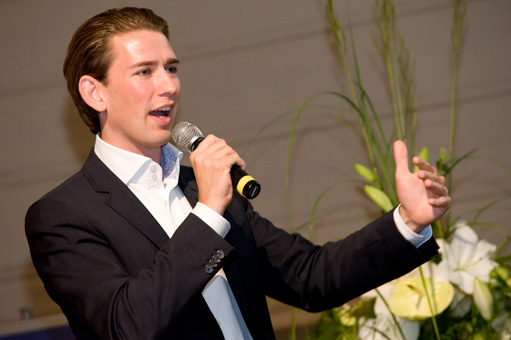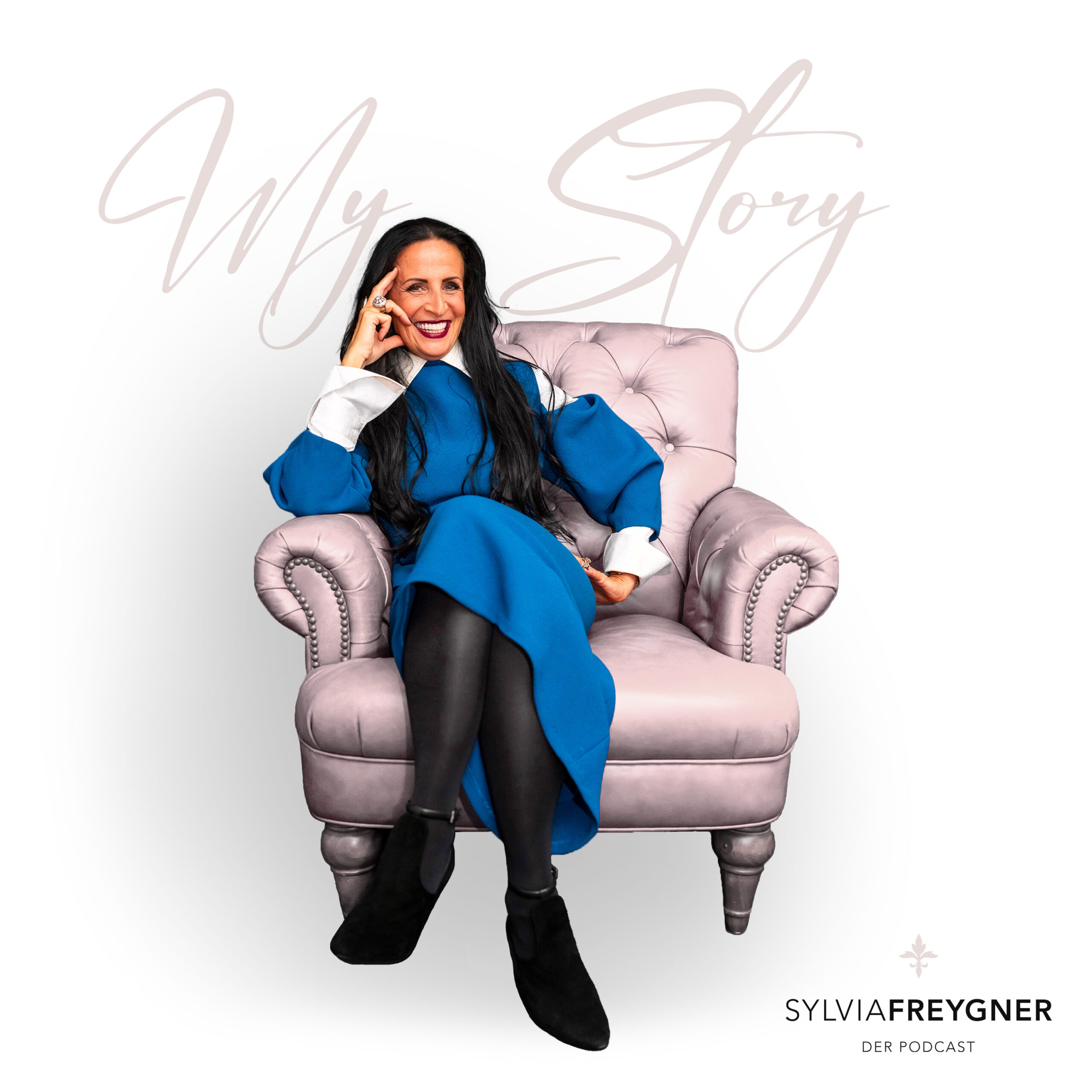
The podcast that connects souls and touches hearts.
Here, we weave a web of words and stories.
Discover true stories, raw and authentic.

In “My Story” my guests share their personal life stories up close. Stories that inspire, captivate, astonish, give courage, and make us laugh or cry. Every person has their own unique story, intertwining and connecting us with many other stories, sometimes even entangling us, and from which we can learn and grow together. A life story requires someone to share it with. And that someone is you.
An exceptional communicator who forges lasting connections with diplomatic finesse. She understands what drives people and creates a space of trust.
Dive into captivating life stories that connect us all.
Experience the highs and lows of life, told by those brave enough to share their experiences and emotions with the world. Let the trailers inspire you and feel the power of real stories. Enjoy a glimpse of what awaits you – authentic, moving, and unique. Watch now and let these stories touch and inspire you!
My Story | The Advocate
To begin, I invite you on a journey through my own life story. I share insights into the highs and lows of my life, the challenges that tested me and helped me grow, and the encounters that shaped and inspired me.
In this first episode of the Podmovie series “My Story,” I offer a preview of my soon-to-be-released book, “The Presumption of Innocence.” The book explores the tension between media reporting and the justice system, delves into themes of guilt, conflict, and alternative resolutions, and highlights pathways to cooperative communication. I am excited to take you on this journey and hope that each of you finds something meaningful within it.
My Story | Fear – My Teacher
Álvaro Vizcaíno is an extraordinary man whose life story embodies courage and determination. After a severe accident on Fuerteventura, where he fell from a cliff, he survived for two days in complete isolation, gravely injured—an experience that changed his life forever.
In My Story, Álvaro shares this defining experience up close for the first time, along with the lessons he learned from it. His story was brought to life in the film “Solo”, now available on Netflix. Today, he inspires people worldwide as a successful coach and keynote speaker, sharing his powerful message: “Fear became my teacher.”
Get ready for an episode filled with resilience, the will to survive, and deeply inspiring insights with Álvaro Vizcaíno.
My Story | A Suitcase Full of Dreams
In this Podmovie, Sandra Ibarra, founder of the Sandra Ibarra Foundation, shares how she left her hometown with a suitcase full of dreams to pursue a career as a model, only to have her life turned upside down by a cancer diagnosis. She fought and beat cancer twice, maintaining her dignity, beauty, and courage through all the challenges.
Today, alongside her husband, Juan Ram Lucas, she leads the Sandra Ibarra Foundation, which supports cancer patients in their recovery and advocates in Spain for legal frameworks to improve life after cancer. Inspired by her role model, Florence Nightingale, Sandra Ibarra has helped thousands of people and shares in this Podmovie how she overcame cancer and became the radiant warrior she is today.
My Story | The Wave Rider
This Podmovie was born from a spontaneous and unexpected encounter. Pedro Flores, a young man from Spain, lives on the island of Fuerteventura, where he learned to surf from his mother.
In this Special Edition, Pedro shares how surfing allows him to experience a deep sense of presence and connection with life. While the trailer is already available, you’ll have to wait until summer 2025 for the full release.
Look forward to an inspiring journey with Pedro Flores. Enjoy until then!
My Story | Das Weltenherz
Tatjana August, author of “Weltenherz”, is an extraordinary woman with a moving life story. Originally planned for release at Easter 2024, this Podmovie was delayed due to a personal setback.
In this Podmovie, Tatjana shares the story of an extraordinary encounter she experienced as a child, one that profoundly shaped her life. As a mother of two sons, she offers touching insights into her journey.
Look forward to an inspiring experience with Tatjana August.
Become our guest!
Salon culture represents a 200-year-long cultural epoch. The French salon tradition significantly influenced salons across Europe and Russia, becoming a counterpart to courtly culture. The salon opposed the aristocratic lifestyle, providing the bourgeoisie with their own “courtly space.” Merit over birthright, decorum over wealth. Driven by the intention to establish private social gatherings as a counterpoint to courtly life, the salon sought to assert the aristocracy’s sphere of influence beyond the confines of the court.
Salon culture reached its zenith only after the French Revolution. The decline of the royal court as the epicenter of art and culture paved the way for the rise of the salon in its new form. Constant discussions on diverse topics challenged outdated beliefs and introduced a transformative approach to culture. In addition to fostering individual artistic creations, the salon became a space for reshaping cultural practices.
In salons, Enlightenment philosophers questioned the premises of the prevailing political systems, rejecting the notion of a divinely ordered cosmos. It was in the salon that the monumental French Encyclopedia was conceived, with its authors, Diderot and d’Alembert, being avid salon attendees themselves.
The overlapping and interconnected circles of individual salons, frequented by many international visitors from Russia, Scotland, Poland, England, and Germany, gave rise to a Europe-wide cultural network over two centuries—a precursor to the modern internet in its ability to connect and exchange ideas across borders.
In the salons, gender roles were redefined, and new forms of communication and social rules between genders emerged. Within the protected space of the salon, women and men could interact freely and respectfully, fostering a sense of honorable liberty.
The Salonière was a central figure in the communication network, showcasing the positive aspects of skills traditionally dismissed and labeled as distinctly feminine. These included mediation (once derided as matchmaking), attentiveness (“hearing the grass grow”), creativity (embracing unconventional perspectives), and even gossip and chatter.
The salon, as the domain of women, became a tool to challenge the disenfranchisement of women. Historically, the private sphere had been the primary realm of female influence. While men exercised their power publicly, women did so discreetly within the home. In the 18th century, women were relegated to roles as mothers and wives. The salon became the starting point for women’s emancipation, offering elite women an opportunity to participate in and even shape public life, a privilege traditionally reserved for men.
The salon was a space where educated women built a new domain of influence. For aristocratic women who had lost their feudal rights under changing constitutions, the salon offered a platform to engage with public life. Within this patriarchal system, the Salonière could visibly assert herself, challenge the asymmetrical power dynamic between men and women, and cultivate her authority.
Many influential Salonières were charismatic pioneers advocating for women’s rights and an egalitarian society. The salon, both feminist and feminine, embodied the art of communication, occasional intrigue, mediation, bridge-building, peacemaking, and neutrality. It provided a space for people of different financial standings, religions, societal ranks, political affiliations, and nationalities to come together for dialogue and exchange.
Women in this setting assumed the role of mediator or “powerbroker,” a role men typically fulfilled in public life as politicians, impresarios, or cultural leaders. The salon was one of the few arenas where women could play similar roles. Political salons, as seen with Berta Zuckerkandl and Anna Kuliscioff, exemplified this dynamic.
Another ambition of the salon was to establish higher education for women. Within the salon, women could intellectually compete with men, an act of defiance against a legal and cultural system that confined them to subordination, loveless marriages, and diminished education. The salon granted women autonomy—a space where they could make decisions independently. This was particularly evident in the late 18th century, where Jewish Salonières emerged as key figures. These women not only fought for women’s emancipation but also for freedom within the constraints of Jewish religious education, advocating for both gender and cultural equality.
The salon was a domain where educational disparities were dissolved, and women were seen as cultivators and shapers of men. The Salonières were instrumental in resisting the re-entrenchment of female exclusion, asserting the right of women to pursue the highest intellectual achievements. Most Salonières were self-taught, finding fulfillment in shaping the social structure of the salon and establishing it as a cornerstone of cultural and intellectual life.
1764-1847
A Jewish Goddess
Writer and Leading Berlin Salonière
Henriette Herz was a pioneer of the literary salon, establishing the leading Berlin salon on Spandauer Straße. Her gatherings attracted prominent politicians, scientists, artists, and literary figures such as the Humboldt brothers, Clemens Brentano, and Rahel Levin. Originally conceived as a women’s circle, her salon evolved into a hub for Heidelberg Romanticism and intellectual exchange.
Writer and Salonière
Rahel Varnhagen became renowned as the host of one of Berlin’s most influential literary salons, where poets, natural scientists, politicians, and aristocrats such as Ludwig Tieck, Friedrich Schlegel, and the Humboldt brothers gathered. Her salon was a hub for intellectual exchange and cultural innovation.
1771-1833
A Social Circle, Unique in All of Germany
1767-1854
The Queen Mother
Salonière
Amalie Beer, known as “The Queen Mother,” hosted a musically oriented salon that attracted nobles, politicians, and artists, including Friedrich Wilhelm IV, Prince Wilhelm, and her son Giacomo Meyerbeer. Her salon was a central meeting place for the early Romantic movement and the cultural elite.
Composer
Fanny Hensel, sister of Felix Mendelssohn Bartholdy, directed the famous “Sunday Music” gatherings of the Mendelssohn family, where works by Bach, Beethoven, and her brother were performed. She later took full responsibility for organizing, composing, and curating the programs for these musical events.
1805-1854
The Salon as a Muse
1857-1925
The Subversive Salonière
Committed Feminist, Anarchist, Socialist
Anna Kuliscioff, a medical doctor, feminist, and socialist, was a co-founder of the PSI and editor of the socialist journal Critica Sociale. Her political activism, marked by exile and imprisonment, maintained the party’s close connections with Friedrich Engels and orthodox socialists.
Writer, Publisher, Art Collector
Gertrude Stein hosted a renowned salon in Paris that attracted avant-garde artists such as Picasso, Matisse, and Braque, as well as later American writers like Hemingway and Fitzgerald. Her salon became a pivotal hub for modern art and literature.
1874-1946
Unconventional Conversations
1864-1945
“Austria Comes Alive on My Divan”
Writer, Journalist, Critic, Salonière
Berta Zuckerkandl hosted a literary salon in Vienna until 1938, bringing together artists and intellectuals such as Gustav Klimt, Johann Strauss Jr., Max Reinhardt, and Arthur Schnitzler. Her salon was a key meeting place for Vienna’s cultural and artistic scene.
© 2024 DERSALON
You will receive information about our upcoming events, can participate in surveys, get exciting insights behind the scenes and will be continuously informed about our new podcast episodes